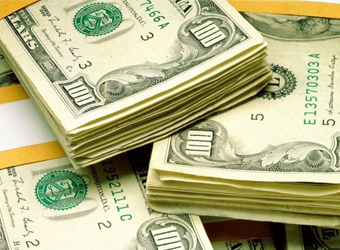Dollar prices were little changed against the yen on Tuesday, with the market wary of potential North Korean provocations, while the euro extended gains following upbeat German data and hawkish-sounding comments from a European Central Bank official.
The greenback was steady at 112.670 yen. It had popped up to a near three-month high of 113.440 on Friday on robust U.S. wages data before pulling back on North Korea concerns.
The dollar was hit late last week by a report that North Korea was preparing a long-range missile test. There were concerns that Pyongyang could mark the days leading to Tuesday, when it celebrates the founding of its ruling party, with some sort of provocation.
“The market will be keeping a side glance on North Korea, but much of the latest tension could have been priced in on Friday when the dollar slipped,” said Masafumi Yamamoto, chief forex strategist at Mizuho Securities.
“Still, the dollar is well supported and not an easy currency to sell at the moment after Friday’s data showed that U.S. wages are improving steadily.”
The index was last at 93.557, down 0.1 percent on the day but still in reach of a 10-week high of 94.267 scaled on Friday when surprisingly stronger U.S. September wages data enhanced already high expectations that the Fed would hike rates for a third time in 2017.
The euro advanced following data showing German industrial output notched its biggest monthly increase in more than six years in August. A call from Sabine Lautenschlaeger, a member of the European Central Bank executive board, for the ECB to roll back asset purchases in 2018 also lifted the common currency.
The euro was up 0.25 percent at $1.1768. It had fallen to $1.1669 on Friday, its lowest since Aug. 17.
The Turkish lira pulled back from nine-month lows probed the previous day after the United States and Turkey mutually scaled back visa services amid the latest sign of deteriorating relations between Ankara and its NATO allies.
The lira stood at 3.6990 against the dollar after tumbling to 3.9223 the previous day, its weakest since January. During Monday’s fall the lira had approached a record low of 3.9417 struck at the start of the year on inflation woes and concerns over domestic politics.
“The visa issue between Turkey and the United States probably won’t generate further selling of the lira for the time being. Scaling back of visa services will only have limited economic impact and it is unlikely to become a permanent measure,” said Kota Hirayama, senior emerging markets economist at SMBC Nikko Securities.
“In the longer term though, Turkey will need to improve its political situation and enable the lira to strengthen from current levels. Otherwise it will be faced with a jump in inflation next year.”
The New Zealand dollar was up 0.1 percent at $0.7069 to put a bit of distance between a four-month trough of $0.7052 touched the previous day after a final vote count in the country’s tight general election failed to identify a clear winner.
Offshore Chinese yuan surged and touched 6.5790 per dollar, its strongest in more than two-weeks, after the central bank set a firmer-than-expected official fix on Tuesday. The move suggests that the authorities are trying to stabilize the currency ahead of next week’s key
national leadership meeting.
The pound nudged up 0.1 percent to $1.3157, having bounced overnight from a one-month low of $1.3027 as news of rising labor costs hardened expectations of higher interest rates, and after Prime Minister Theresa May vowed to ward off challenges to her leadership. Source: Reuters
Source: Reuters


